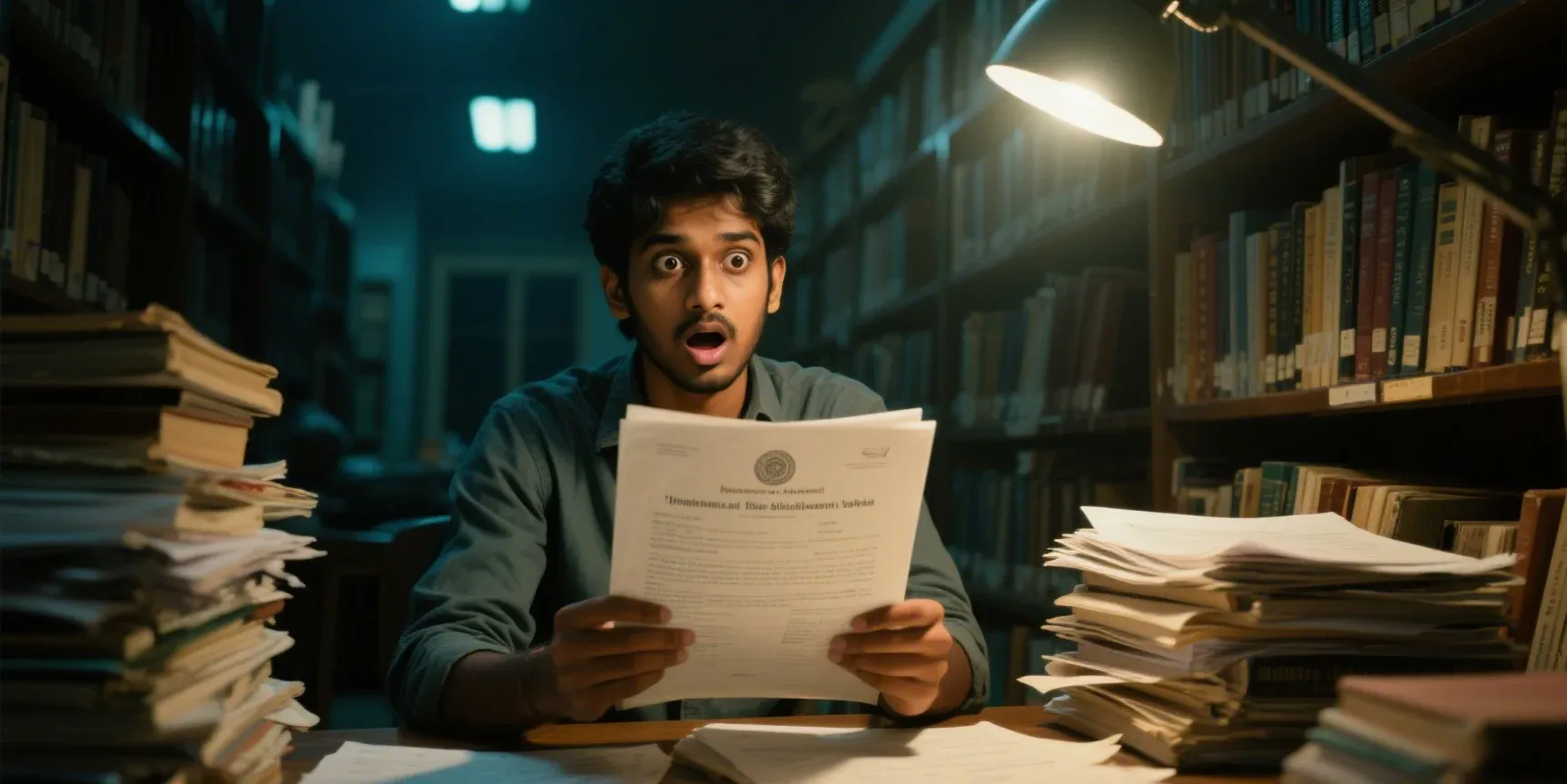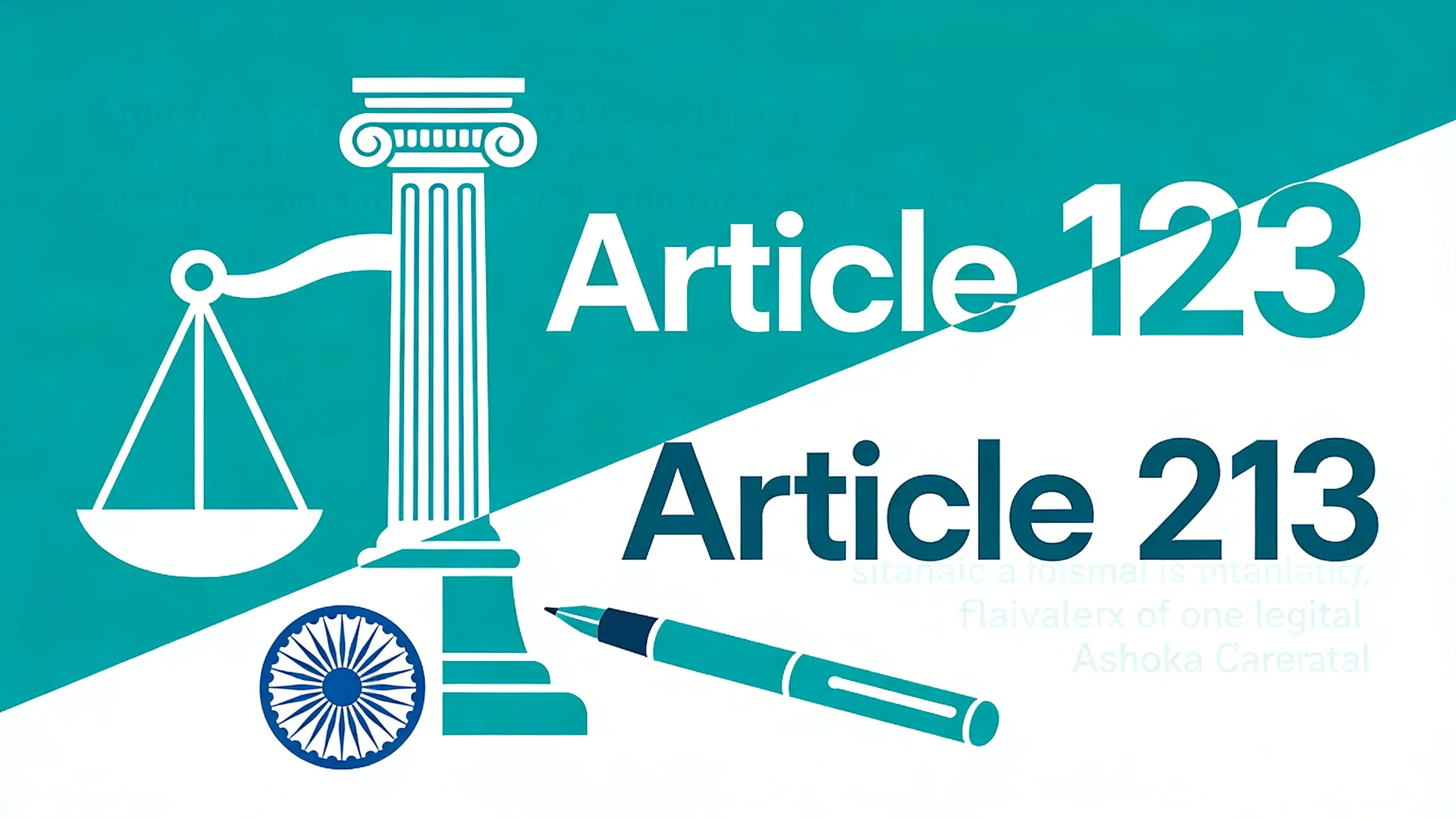
The Right to Information (RTI) Act, 2005: Your Complete Guide to Empowering Citizenry in India
Unlock the power of the Right to Information (RTI) Act, 2005 with our complete guide, covering its key objectives, how to file an application, and its vital role in promoting transparency and accountability in India.
In a democratic nation, the power ultimately rests with the people. But for this power to be exercised effectively, citizens need to be well-informed about the functioning of their government. The Right to Information (RTI) Act, 2005, stands as a monumental pillar in the architecture of Indian democracy, empowering every citizen with the right to question and access information from public authorities. This landmark legislation aims to foster a culture of transparency and accountability in governance, effectively making the government more answerable to the governed.
The RTI Act, which came into force on October 12, 2005, replaced the earlier Freedom of Information Act, 2002. It was a culmination of years of grassroots movements and judicial recognitions that the right to know is a fundamental aspect of a functioning democracy. The Act has since been a vital tool for citizens, journalists, and activists to uncover corruption, demand accountability, and ensure the effective delivery of government services.
The Importance and Objectives of the RTI Act
The primary goal of the Right to Information Act is to empower citizens, promote transparency and accountability in the working of every public authority, combat corruption, and make India’s democracy work for the people in a real sense. An informed citizenry is better equipped to keep a necessary watch on the instruments of governance and hold the government accountable.
The key objectives of the RTI Act are:
- To empower citizens to question the government and its various departments.
- To foster transparency and accountability in the functioning of the government.
- To act as a deterrent against corruption in government and its instrumentalities.
- To create a more informed citizenry that can actively participate in the democratic process.
- To ensure that governments and their instrumentalities are held accountable to the people they serve.
The Constitutional Foundation of the Right to Information
While the Indian Constitution does not explicitly mention a “right to information” as a fundamental right, the Supreme Court of India has interpreted it as an intrinsic part of two fundamental rights:
-
Article 19(1)(a) - The Right to Freedom of Speech and Expression: The Supreme Court has repeatedly held that the right to freedom of speech and expression includes the right to receive and impart information. A true democracy cannot thrive unless its citizens are well-informed about the affairs of the country. Landmark cases like State of Uttar Pradesh v. Raj Narain (1975) established that in a system of government where the people are the masters, they have a right to know about the working of the government.
-
Article 21 - The Right to Life and Personal Liberty: The apex court has also linked the right to information to the right to life and personal liberty, arguing that an informed citizen is essential for a meaningful existence in a democratic society.
The RTI Act of 2005, therefore, provides the necessary statutory framework to operationalize this judicially recognized fundamental right.
Key Provisions of the RTI Act, 2005
The Right to Information Act is a comprehensive legislation with several key provisions that outline the rights of citizens and the obligations of public authorities.
1. Definition of ‘Information’ and ‘Public Authority’:
- Information: Under Section 2(f) of the Act, ‘information’ is broadly defined to include any material in any form, such as records, documents, memos, e-mails, opinions, advices, press releases, circulars, orders, logbooks, contracts, reports, papers, samples, models, and data material held in any electronic form. It also includes information relating to any private body which can be accessed by a public authority under any other law.
- Public Authority: Section 2(h) defines a “public authority” as any authority or body or institution of self-government established or constituted by or under the Constitution, by any other law made by Parliament or a State Legislature, or by notification issued or order made by the appropriate Government. It also includes bodies owned, controlled, or substantially financed by the government, and non-government organizations substantially financed, directly or indirectly, by the government.
2. Obligations of Public Authorities (Section 4):
A crucial aspect of the RTI Act is the proactive disclosure of information by public authorities. Section 4 mandates every public authority to:
- Maintain all its records duly catalogued and indexed in a manner that facilitates the right to information.
- Computerize their records for wide dissemination and connect them through a network across the country.
- Suo motu (on its own) publish a wide range of information, including the particulars of its organization, functions, and duties; the powers and duties of its officers and employees; the procedure followed in the decision-making process; and the details of its Public Information Officers (PIOs).
3. Designation of Public Information Officers (Section 5):
Every public authority is required to designate Central Public Information Officers (CPIOs) or State Public Information Officers (SPIOs) at various administrative units or offices. These officers are the primary point of contact for citizens seeking information under the Act. Assistant Public Information Officers (APIOs) are also designated to receive RTI applications and forward them to the concerned PIO.
4. The Procedure for Requesting Information (Section 6):
The process for filing an RTI application is designed to be simple and citizen-friendly.
- Any citizen of India can make a request in writing or through electronic means.
- The application should be in English, Hindi, or the official language of the area.
- The applicant is not required to provide any reason for requesting the information or any personal details except those necessary for contact.
- A prescribed application fee is required, which is nominal. However, individuals below the poverty line are exempt from paying the fee.
5. Disposal of Request (Section 7):
The Act sets a strict timeline for responding to RTI requests.
- The PIO must provide the information within 30 days of the receipt of the request.
- If the information sought concerns the life or liberty of a person, it must be provided within 48 hours.
- If the PIO fails to provide the information within the specified time, it is considered a “deemed refusal.”
- If the information is provided after the deadline, it must be given free of charge.
How to File an RTI Application: A Step-by-Step Guide
Filing an RTI application is a straightforward process. Here’s how you can do it, both online and offline:
Filing an RTI Application Offline:
- Identify the Concerned Public Authority: The first step is to determine which government department or public authority holds the information you are seeking.
- Draft the Application: Write your application on a plain sheet of paper. While there is no strict format, it’s advisable to be clear and specific in your request. Address the application to the Public Information Officer (PIO) of the concerned department.
- Include Necessary Details: Your application should include your name and contact details, the particulars of the information you are seeking, and the period to which the information pertains.
- Pay the Application Fee: The application fee for central government departments is ₹10. This can be paid through an Indian Postal Order (IPO), a demand draft, or a banker’s cheque. Some states have different fee structures and payment methods.
- Submit the Application: You can submit the application in person to the PIO or send it by registered post. It is advisable to keep a copy of the application and the proof of submission for your records.
Filing an RTI Application Online:
The Government of India has an online RTI portal (rtionline.gov.in) for filing applications with central government departments and ministries. Many state governments also have their own online RTI portals.
- Register on the Portal: If you are a first-time user, you will need to register on the respective online portal.
- Fill out the Online Form: Select the ministry or department you want to file the RTI with and fill in the required details in the online form.
- Clearly State Your Query: In the designated text box, type your query clearly and concisely. You can also upload a PDF of your application.
- Pay the Fee Online: The application fee can be paid online using internet banking, debit/credit cards.
- Submit and Track: After successful submission, you will receive a unique registration number which you can use to track the status of your application.
Exemptions from Disclosure: Understanding Section 8
The Right to Information is not absolute and is subject to certain reasonable restrictions. Section 8 of the RTI Act lists the categories of information that are exempt from disclosure. This is to balance the public’s right to know with other important interests such as national security, privacy, and the efficient functioning of the government.
Key exemptions include information that would:
- Prejudicially affect the sovereignty and integrity of India, the security, strategic, scientific, or economic interests of the State, or relations with a foreign state.
- Be expressly forbidden to be published by any court of law or tribunal.
- Cause a breach of privilege of Parliament or the State Legislature.
- Constitute commercial confidence, trade secrets, or intellectual property, the disclosure of which would harm the competitive position of a third party, unless a larger public interest warrants disclosure.
- Be available to a person in their fiduciary relationship, unless a larger public interest warrants disclosure.
- Endanger the life or physical safety of any person.
- Impede the process of investigation or apprehension or prosecution of offenders.
- Relate to personal information which has no relationship to any public activity or interest, or which would cause an unwarranted invasion of the privacy of the individual. However, information that cannot be denied to the Parliament or a State Legislature shall not be denied to any person.
It is important to note that most of these exemptions are not absolute and are subject to a “public interest override.” This means that if the public interest in disclosing the information outweighs the harm to the protected interests, the information must be disclosed.
The Role and Powers of Information Commissions
To ensure the effective implementation of the RTI Act, the legislation provides for the establishment of the Central Information Commission (CIC) at the national level and State Information Commissions (SICs) at the state level. These are independent, quasi-judicial bodies that play a crucial role in enforcing the provisions of the Act.
Powers and Functions of the Information Commissions:
- Adjudication of Appeals: The Commissions are the final appellate authority for RTI matters. A citizen who is not satisfied with the response of the PIO or the First Appellate Authority can file a second appeal with the respective Information Commission.
- Inquiry into Complaints: The Commissions have the power to inquire into complaints from any person who has been unable to submit an RTI request, has been refused information, or has not received a response within the stipulated time.
- Powers of a Civil Court: While inquiring into a matter, the Information Commissions have the powers of a civil court, which include summoning and enforcing the attendance of persons, requiring the discovery and inspection of documents, and receiving evidence on affidavit.
- Imposition of Penalties: Section 20 of the Act empowers the Commissions to impose penalties on PIOs for various violations, such as refusing to receive an application, not furnishing information within the specified time, or knowingly giving incorrect, incomplete, or misleading information. The penalty can be up to ₹250 per day, subject to a maximum of ₹25,000.
- Monitoring and Reporting: The Commissions are also responsible for monitoring the implementation of the Act and preparing an annual report to be laid before the Parliament or the State Legislature.
Impact of the RTI Act on Governance and Society
Over the years, the Right to Information Act has had a profound impact on governance and society in India.
- Increased Transparency and Accountability: The Act has been instrumental in bringing about a culture of transparency in the functioning of public authorities. It has empowered citizens to demand accountability from public officials, leading to a reduction in arbitrariness and an improvement in governance.
- Curbing Corruption: The RTI Act has emerged as a powerful tool in the fight against corruption. Citizens and activists have used the Act to expose various scams and financial irregularities in government departments.
- Empowerment of Citizens: The Act has empowered ordinary citizens by giving them a mechanism to access information and participate more effectively in the democratic process. It has been particularly beneficial for marginalized communities in accessing their rights and entitlements.
- Improved Public Service Delivery: By enabling citizens to question the delivery of public services, the RTI Act has, in many instances, led to improved efficiency and responsiveness from government departments.
Challenges in the Implementation of the RTI Act
Despite its successes, the implementation of the Right to Information Act is not without its challenges.
- Lack of Awareness: A significant portion of the population, especially in rural and disadvantaged communities, is still unaware of the provisions of the RTI Act and how to use it effectively.
- Bureaucratic Resistance: There is often a culture of secrecy within the bureaucracy, leading to resistance in providing information. PIOs may delay or wrongfully deny information, forcing applicants to go through the lengthy appeal process.
- Backlog of Cases: The Information Commissions are often burdened with a huge backlog of appeals and complaints, leading to significant delays in the disposal of cases. This undermines the time-bound nature of the Act.
- Attacks on RTI Activists: Individuals who use the RTI Act to expose corruption and wrongdoing have often faced threats, harassment, and even physical attacks. There is a need for stronger mechanisms to protect RTI activists.
- Dilution of the Act: Recent amendments to the RTI Act have raised concerns about the dilution of the independence and autonomy of the Information Commissions. The amendments give the central government the power to determine the tenure and salaries of the Information Commissioners, which critics argue could compromise their ability to function without fear or favor.
The Way Forward
The Right to Information Act, 2005, is a transformative piece of legislation that has the potential to deepen democracy and ensure good governance in India. To realize its full potential, it is crucial to address the challenges in its implementation. This includes:
- Increasing Public Awareness: There is a need for widespread awareness campaigns to educate citizens about their rights under the RTI Act.
- Strengthening Information Commissions: The Information Commissions need to be strengthened with adequate resources and manpower to clear the backlog of cases and ensure timely justice.
- Ensuring the Safety of RTI Activists: The government must take proactive measures to protect RTI activists and whistleblowers.
- Promoting Proactive Disclosure: Public authorities should be encouraged to proactively disclose more information as mandated under Section 4 of the Act, which would reduce the need for citizens to file individual RTI applications.
In conclusion, the Right to Information Act, 2005, is more than just a law; it is a fundamental shift in the power dynamics between the citizen and the state. It has provided a powerful instrument for ordinary people to demand transparency and accountability, and its effective implementation is crucial for the health and vibrancy of Indian democracy.


